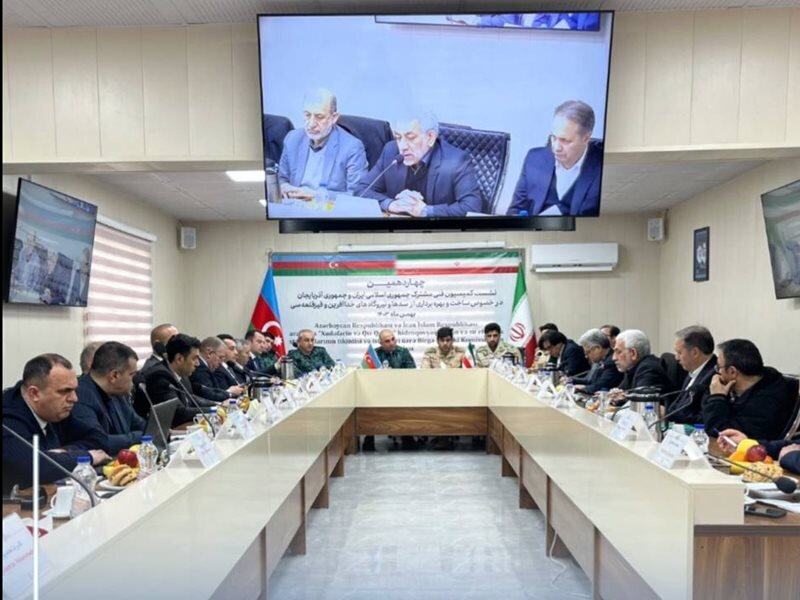Tehran, Baku hold joint technical committee on hydropower projects

TEHRAN - Iran and Azerbaijan convened the 14th Joint Technical Committee on the construction and operation of Khoda Afarin and Qiz Qalesi dams and power plants, discussing completed measures and the development of related facilities.
According to IRIB, the meeting was attended by Mohammad Javanbakht, Iran’s deputy energy minister for water and wastewater affairs, and Elnur Sultanov, Azerbaijan’s deputy energy minister.
The session reviewed Iran’s progress in the construction of Khoda Afarin and Qiz Qalesi dams and the related power plants, following previous negotiations.
The two sides assessed the project’s progress and reached agreements on future cooperation and the implementation of bilateral commitments.
Iran and Azerbaijan have maintained close collaboration in the energy and water sectors, with multiple agreements aimed at the joint development of hydropower infrastructure along their shared borders. The two countries have partnered on several projects to optimize water resource management, particularly in the Aras River basin, which is a critical source of water for both nations. Their cooperation has focused on flood control, irrigation, and electricity generation, ensuring mutual benefits for agriculture and industry.
In addition to hydropower projects, Iran and Azerbaijan have also expanded their energy cooperation in the oil and gas sectors. As both countries possess significant hydrocarbon reserves, they have explored joint ventures in energy transportation and refining. Iran has served as a transit route for Azerbaijani gas exports, while discussions on expanding electricity trade between the two nations have gained momentum in recent years.
The development of Khoda Afarin and Qiz Qalasi dams is a testament to the long-standing partnership between Tehran and Baku in sustainable water management. These projects not only generate electricity but also support regional stability by addressing water scarcity and preventing environmental degradation. The power plants associated with these dams are expected to strengthen Azerbaijan’s energy supply while contributing to Iran’s electricity export capacity.
Iran and Azerbaijan have also worked together on cross-border energy exchanges, with both nations seeking to integrate their power grids to enhance reliability and efficiency. This integration would allow them to balance electricity supply and demand more effectively, particularly during peak consumption periods. The ongoing cooperation aligns with broader regional efforts to create a more interconnected and resilient energy network.
Looking ahead, both countries are expected to deepen their energy and water cooperation through additional infrastructure projects and policy alignments. The 14th Joint Technical Commission underscores their commitment to strengthening bilateral ties in these sectors, ensuring that future developments align with the strategic interests of both Tehran and Baku.
EF/MA
Leave a Comment